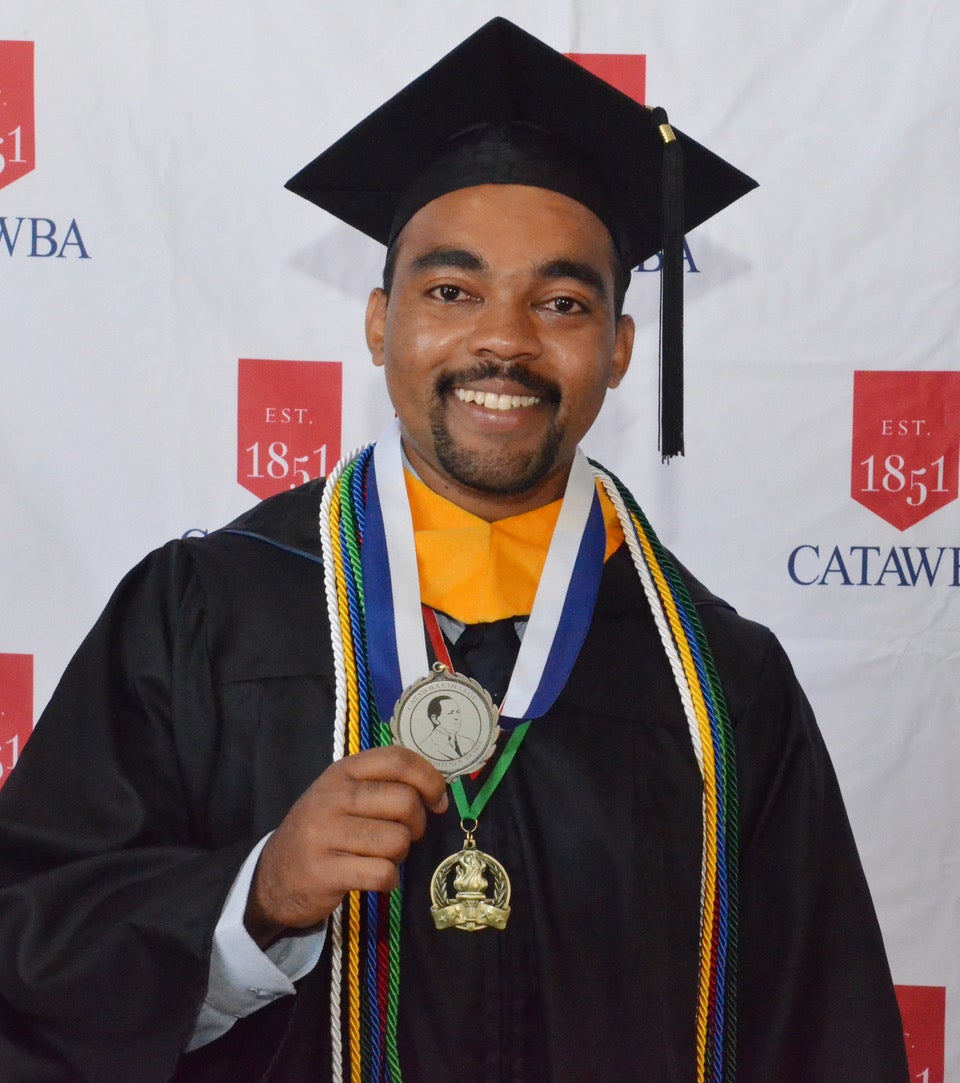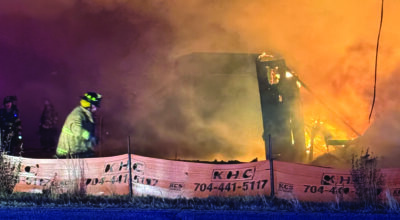From Kenya to Catawba College: Award-winning grad plans to solve environmental problems
Published 12:00 am Thursday, May 27, 2021

- Alberto Borges
SALISBURY — The day he graduated from college, Alberto Borges was thinking of a river in his childhood home in Kenya.
Borges, 24, came to North Carolina from his native Kenya and attended Catawba on a full scholarship to study environment and sustainability. He earned Catawba’s highest academic honor, the Whitener Award.
He has a plan for the future. Someday, he will build a wilderness conservation center that will enable him and others to explore, research and conserve Northern Kenya, and restore that river’s ecological integrity.
Graduation day was bittersweet. He heard the college president call out the parents of the graduates, thanking them, and he knows that his mom was watching the ceremony on a live feed back home in Kenya. He is missing his family, especially his dad who passed away in 2020, before seeing Borges graduate.
“He inspired me to continue, to take care of the family, and to fill the gap that he left behind,” he said. He dedicated the Whitener Award in memory of his dad. He grew up watching nature films on TV and learning about wildlife and the environment with his dad.
Borges said his father told him one of the greatest mistakes of his life was to give up.
“That helps me to find hope, to find passion, to find the fire, and I am able to move on. In addition, that ties in to discipline. My dad was very particular about discipline, holding ourselves with respect, being good members of society, and embracing the beauty of life.”
Borges’ educational path has not been easy. With three children in college, his parents consented to Alberto leaving Kenya to study in the U.S., when Luke Dollar, chair of the department of Environment and Sustainability at Catawba, offered him a full scholarship. Alberto recalled Dollar told him that he intended to hold his hand for the next 10 years, to see him through his doctorate.
Alberto’s dad was a retired high school principal, and his mom studied tourism and now runs a cafeteria in Nairobi.
Alberto was already in college, at Kenyatta University in Nairobi County, Kenya, but the faculty was on strike frequently and his education was halted, he says. Alberto met Dollar in 2017 at a National Geographic Explorers Conference in Washington, DC. Both are Explorers involved in the Society.
He enrolled at Catawba in 2018 as a sophomore after a conservation work trip to Madagascar with Catawba students. He feels at home at Catawba and talks of the support of his foster parents, Jude and Nalini Joseph, who take him to Mass at Sacred Heart Catholic Church.
He was fascinated with his Catawba classes — history, social justice, wildlife ecology, recreational leadership, botany, and geographic information systems. He has spoken at Salisbury civic clubs and churches about his journey and his goals for a Wilderness Conservation Center in Kenya. The day after graduation, he spoke at the Duke University Chapel.
“Catawba offered me a chance to create my own experience,” says. “My dad encouraged us to study the things we had interests in, so that we would do it passionately, unlike other parents who encourage children to study what the parents want,” he says.
He was back home in Kenya, in 2020, unable to get back to the U.S. during the pandemic and struggling with studying remotely when his dad died unexpectedly. He thought of dropping out of college, but a group of Catawba professors and others reached out, giving him time to mourn before returning to Catawba. On this graduation day, he is grateful.
Borges intends to attend graduate school either at University of Western Australia or University College of London.




